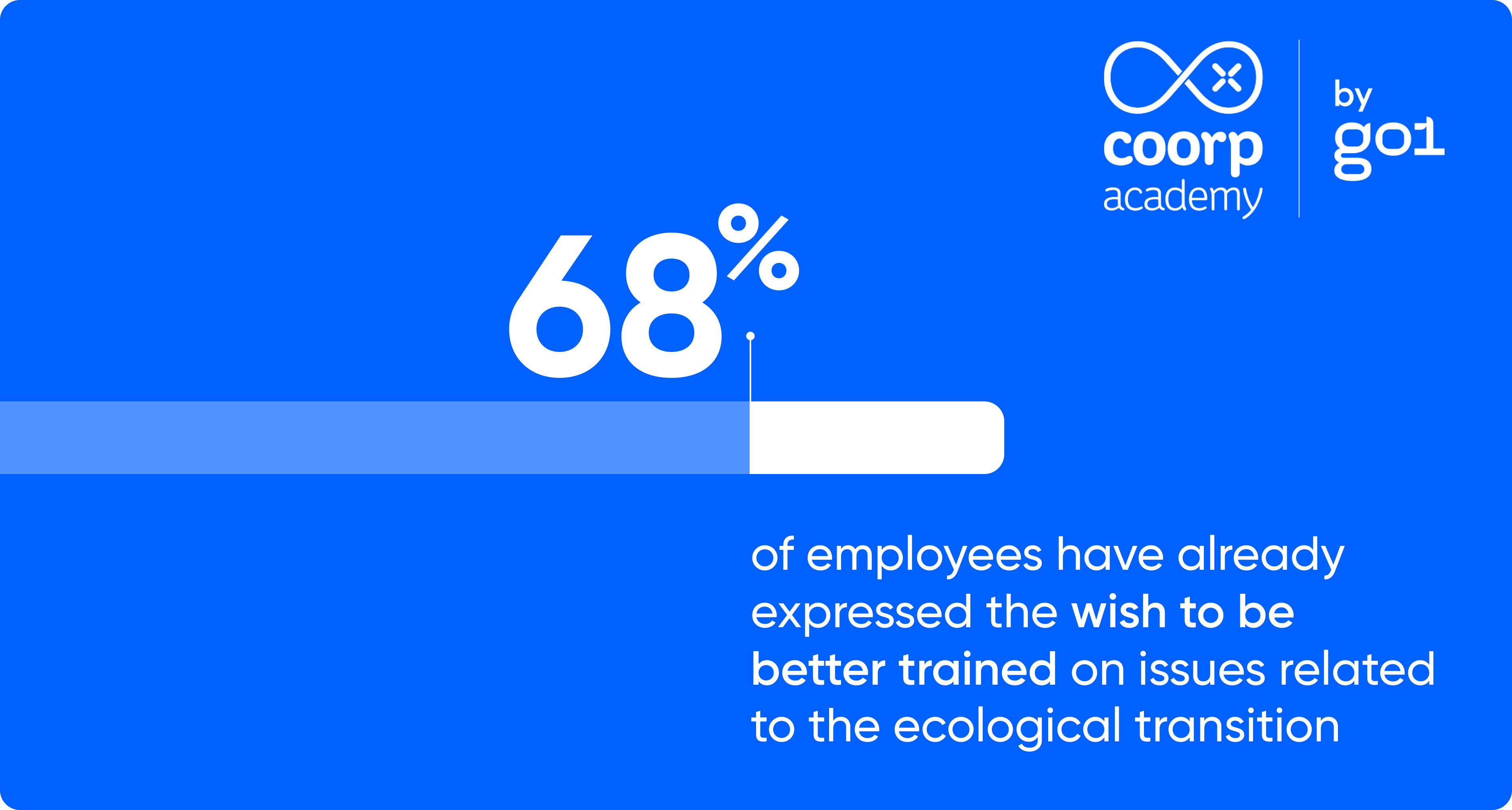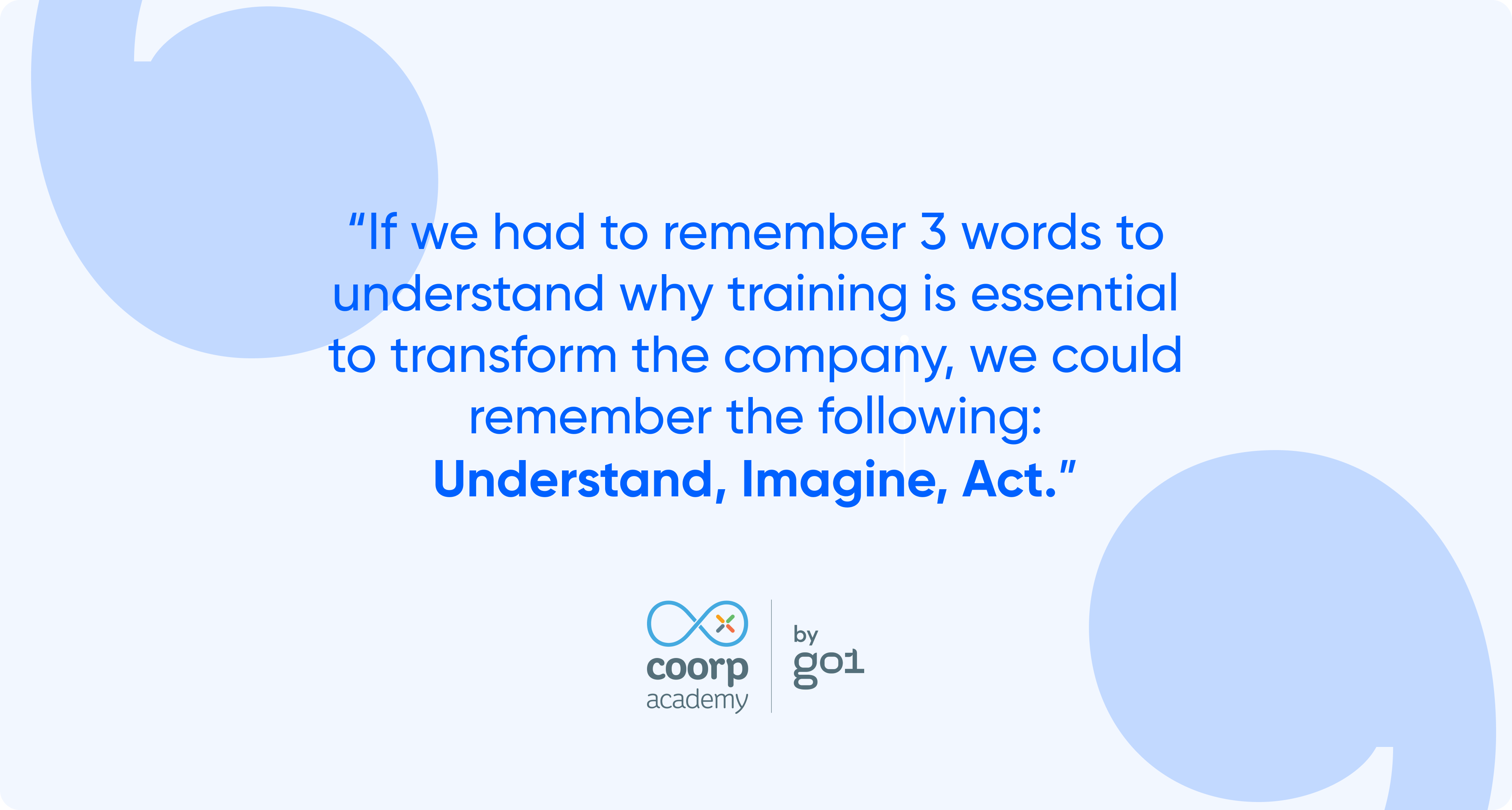From September 18 to October 8, the European Week for Sustainable Development is held. This year’s theme is “Acting Everyday”. The motto: all actions count, including everyday gestures, to deeply transform our societies.
In companies, it’s the same thing. It is by planting small seeds that we can transform an organization. This is why our clients have been able to offer their learners the opportunity to become acculturated to the ecological transition through a playlist of 5 courses, in order to become an actor in sustainable development. And if we talk to you about planting seeds, it is also because at the end of this animation, a tree will be planted for every 1000 questions answered on each platform. We explain below.
“The Earth is now the one and only shareholder of Patagonia”. On Wednesday, September 14, Yvon Chouinard, the founder of the American outdoor clothing brand Patagonia, announced that he had transferred 100% of his company’s capital and voting rights to two structures responsible for “protecting the planet,” a mission endorsed by the company since 2018. The company’s dividends now fund actions to combat global warming, to the tune of $100 million a year.
Record temperatures, drought, mega-fires: at the end of the summer, the need to invent new models is more obvious than ever. Patagonia’s choices are pioneering, but everywhere employees’ expectations are changing drastically. Indeed, according to a CSA study, for an equivalent offer, 78% of employees prefer to join a company committed to the ecological transition.

The same study reports that 68% of employees have already expressed the wish to be better trained on issues related to the ecological transition. However, only 17% of employees claim that their company offers training on issues related to the ecological transition. Offering training on environmental issues is at the heart of the strategy of companies, which feel a duty to raise awareness and train employees on the ecological transition and, above all, to involve the entire organization in an environmental approach.
This is why our clients wanted to seize the opportunity of the Sustainable Development Week to reinforce the skills development of their employees around the ecological transition, by launching an animation on the platforms Coorpacademy by Go1!
Understand, Imagine, Act
If we had to remember 3 words to understand why training is essential to transform the company, we could remember the following: Understand, Imagine, Act. Indeed, understanding the stakes is key to be able to imagine the actions to be implemented within one’s own company or industry, and these two steps are crucial to take action.

It is in this context that we have suggested to our clients the animation “Become a Sustainable Development Actor”. This animation offers to the learners to train themselves through a playlist of 5 courses allowing them to develop “green” skills, which can help them to act daily in favor of the environment.
The objective being that as many employees as possible play the lessons in the playlist, several emails were sent to learners throughout Sustainable Development Week.
At the end of this animation, trees will be planted in honor of the users who participated. From then on, 1 tree will be planted for every 1000 questions answered, to encourage employees to complete all the courses in the playlist!
These trees that we are going to plant are part of a global project of reforestation of the French forest, in partnership with the company Naudet. Created in 1876, its main activities are the production and planting of young forest plants and the production of Christmas trees. More than 4,000 hectares are reforested each year for public and private owners and more than 20 million young plants are produced. Naudet Reboisement’s projects are managed from the production of the seedling to the planting, follow-up and maintenance of the plantation.
Why plant?
In the 1990s, 110 million trees were planted per year, today it is less than 30 million (Ministry of Agriculture). French forests are subject to fires, whether from natural or criminal sources. The environmental impact of a fire can also be considerable. And as we have witnessed in recent months, forest fires are increasingly numerous and devastating.
In addition to landscape modifications, there is the destruction of environments that are followed by biological losses (fauna and flora usual to wooded areas), the loss of soil quality and the significant risk of erosion, due to the increase in runoff on bare soil. Following these fires, species will regenerate naturally and come to dominate the open environment. It is important to reintroduce improved forest varieties by planting to restore production capacity. Therefore, large areas must be regularly replanted following these disasters.
With our partner, we are proud to be able to participate in our own way in the reforestation of our forests, while increasing the impact of training to change our behavior in a sustainable way!
Do you want to initiate the ecological transition of your company? Let’s talk.
